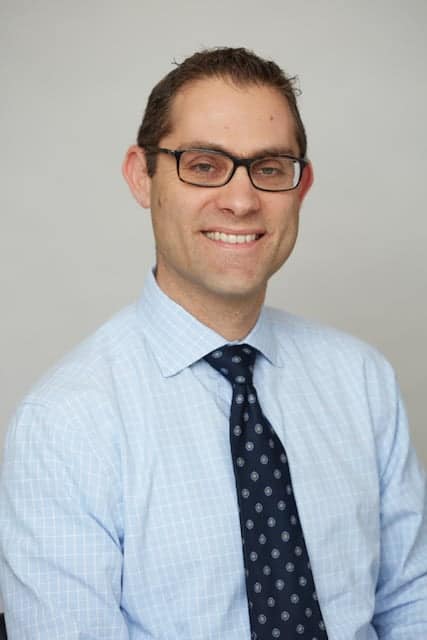
By Dan Murphy
In recognition of American Heart month in February, Dr. Alon Gitig, Mount Sinai Doctors-Westchester shares ways that all of us can learn more and stay informed about their heart health, including the importance of keeping up on our annual Doctor’s visits and testing during COVID.
“659,000 people in the United States die from heart disease each year, that’s 1 in every 4 deaths. And most of those deaths are heart attacks. 15% of people who have a fatal heart attack had no prior diagnosis. About half the people who are candidates for heart disease, stroke and a heart attack are walking around without knowing it,” said Dr. Gitig.
These are sobering statistics, but the good news is that by better understanding your own heart health, you can treat the symptoms, stay current with your checkups and physicals, and get healthier. “I want my patients to be aware of their own health and to recognize the signs and symptoms of heart disease. Only half of Americans know the 5 most common signs and symptoms of a heart attack,” said Dr. Gitig.
The major symptoms of a heart attack are
· Chest pain or discomfort. Most heart attacks involve discomfort in the center or left side of the chest that lasts for more than a few minutes or that goes away and comes back. The discomfort can feel like uncomfortable pressure, squeezing, fullness, or pain.
· Feeling weak, light-headed, or faint. You may also break out into a cold sweat.
· Pain or discomfort in the jaw, neck, or back.
· Pain or discomfort in one or both arms or shoulders.
· Shortness of breath. This often comes along with chest discomfort, but shortness of breath also can happen before chest discomfort.
Anyone experiencing one or more of these symptoms should see their doctor for an EKG or other heart test or go to the hospital.
“Each patient needs to learn about their own heart health and get an understanding and acknowledgment of your family history, blood pressure ranges, whether you have diabetes or are pre-diabetic, and your weight and physical activity. All of these play a role in determining if you may have coronary disease. Half of patients who die suddenly from cardiac arrest had not been diagnosed previously,” said Dr. Gitig.
One test that Dr. Gitig says he uses to test heart health is a coronary calcium test, which detects calcium buildup in plaque along the walls of the coronary arteries, that supply the heart with blood and oxygen. This test is used for patients who may not have any symptoms but may be at risk for heart disease.
“I am a huge proponent of a coronary calcium scan test. This test has been shown to improve the classification of risk for people with heart disease and stroke over traditional risk factors. While not every person should get this test, certainly if your physician says that you are in the intermediate group for risk of heart attack, then it is a very useful test in a significant portion of people.
“And in my opinion, there is an argument that every man over the age of 40 and women in their 50’s to get this test done. While It might not change whether they have to take medications for blood pressure or cholesterol, it helps people have a better understanding of what is happening with their body and will help many patients take control of their health and their lifestyle for the long term. You may change your way of thinking when you know more about what’s going on with your body,” said Dr. Gitig.
High Blood Pressure:
High blood pressure is one of the major causes of heart disease and risk of having a heart attack. “Many of my patients have high blood pressure, but almost half of those with high blood pressure don’t know if they have it or that the optimal number is less than 130 over 80.
“Some believe that high BP is an inevitable part of our aging population, but we can’t ignore the fact that in more traditional societies, BP numbers are not so high. And that is because of three reasons; they eat less or no processed foods, they have more physical activity, and they have improved mental states and less stress.
The higher your blood pressure levels, the more risk you have for heart disease, heart attack, and stroke.Nearly half of adults in the United States have hypertension, defined as blood pressure greater than 130 over 80. Only one in four adults with hypertension have their condition under control.
“I recommend to all of my patients that they know and understand their blood pressure numbers and their blood sugar levels to determine if they are pre-diabetic. Diabetes is another major cause of heart disease. That is why you should continue to see your doctor regularly, even when you are feeling well.”
“I’ve seen a lot of people stop coming in regularly for their physicals, and the evidence shows that it because of a fear of COVID. But the research also shows that its quite rare to contract COVID at the Doctor’s office or the hospital. Once universal masking when into effect, COVID rates went down,” said Dr. Gitig.
“The take home message is that people don’t stop having heart disease because there is a pandemic. If you feel sick you should go to the doctor or the hospital. If you are at high risk of heart disease, the risk to your health of not seeing a doctor is greater than the risk of getting COVID. As long as you are vaccinated and boosted, that risk of getting very sick from COVID is low.
“If you want to be proactive about your health and if you have symptoms, you should be coming in to get checked. It’s the safest thing to do,” said Dr. Gitig.
Alon Gitig, MD, is Director of Cardiology at Mount Sinai Doctors-Scarsdale and Mount Sinai Doctors-Yonkers. He is also an Assistant Professor of Cardiology, Icahn School of Medicine at Mount Sinai, and Medical Director of the Heart Failure Management Program for the Mount Sinai Health Network.
To make an appointment, visit https://www.mountsinai.org/locations/westchester.




